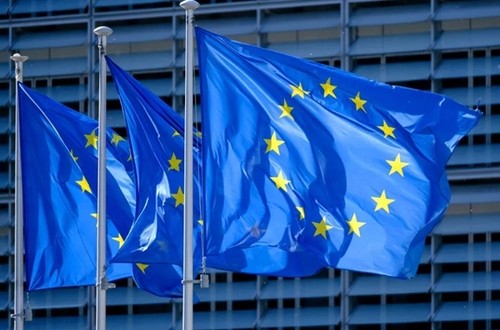 (Illustrative photo by Getty Images) (Illustrative photo by Getty Images)
|
Lifting pandemic curbs is a lever for recovery
The European Union statistics office, Eurostat, says the Eurozone economy grew 2% in the second quarter of this year. The easing of pandemic restrictions stimulated economic activity after a short period of recession. The quarterly growth followed a two-quarter decline in GDP, with the Eurozone economy contracting 0.6% in the fourth quarter of 2020 and 0.3% in the first quarter of 2021.
The driving force for the EU recovery has been business investment in the manufacturing sector. Business support policies and short-term work programs have been implemented. Recently, the European Central Bank (ECB) raised its forecast for Eurozone growth in 2021 to 5%, higher than the previous forecast of 4.6%. The bloc's largest economies, Germany, France, and Spain, have resumed their growth. Although the Eurozone’s inflation rate remains high, it is considered just a temporary result of pandemic-related factors.
These signs of recovery, thanks primarily to the lifting of pandemic restrictions, have boosted business and consumer confidence. In the second quarter of this year, retail sales recovered to pre-COVID-19 levels and EU stock markets surged to record highs. Since July 1 all EU members have been accepting visitors with EU digital COVID-19 certificates. ECB President Christine Lagarde said at an ECB forum on September 28 that the pandemic has caused a recession like no other, and a recovery that has few parallels in history.
 Mercedes-Benz car production line in Germany (Photo: AFP) Mercedes-Benz car production line in Germany (Photo: AFP)
|
Economists believe Europe will avoid another lockdown that could cripple the economy like the ones that pushed the region into two recessions in the past 18 months. Vaccination has significantly reduced COVID-19 infections and virus mutations so large-scale restrictive measures are unlikely to be applied in Europe in the near term.
Stimulus packages
In June, the EU began disbursing a relief package from a 750 billion euro COVID recovery fund to create jobs and prop up businesses in affected economies. The fund is part of the EU's long-term budget package until 2027, which aims to address the economic and social consequences of the pandemic. In mid-July, the EU approved a recovery plan submitted by 12 countries to pave the way for the first disbursement of the bloc's grants and loans. The recovery instrument ensures that EU member states have the means to rebuild and restructure their economies following this unprecedented crisis.